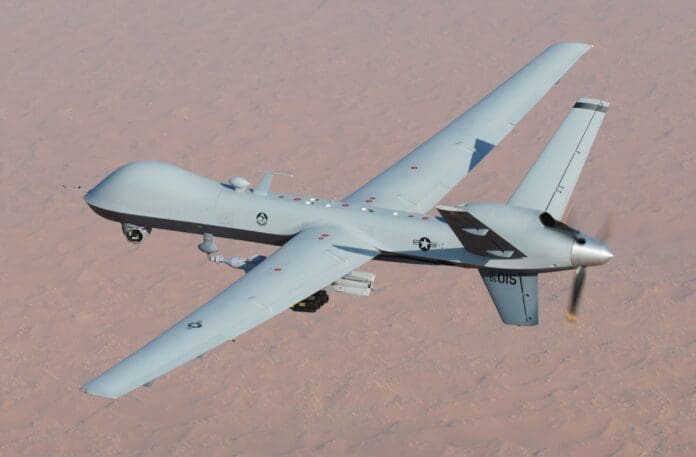This post is also available in:
 עברית (Hebrew)
עברית (Hebrew)
The U.S. Air Force Special Operations Command (AFSOC) is moving forward with plans to transform existing unmanned platforms, like the MQ-9 Reaper, into long-range precision strike assets using compact cruise missiles. This strategic shift could significantly extend the reach and lethality of legacy drones, placing them closer to the performance envelope of traditional combat aircraft.
At the heart of the initiative is the integration of emerging low-weight cruise missiles such as the ‘Black Arrow’. A successful test firing of the missile from an AC-130 gunship earlier this year confirmed the weapon’s operational viability on air platforms. The next step may involve adapting it for drones like the MQ-9, which are already deployed globally for surveillance and strike operations, according to Defense One.
The rationale is clear: boost capability without acquiring new, costly airframes. By adding cruise missile functionality, drones can engage targets hundreds of miles away, operating with far greater autonomy and reach. This capability is especially relevant as U.S. forces increasingly face adversaries armed with more advanced air defense systems, such as those seen with Houthi factions in Yemen.
To support this transition, AFSOC also plans to leverage artificial intelligence to automate complex tasks like target identification, reducing cognitive load on human operators. The integration effort will likely require collaboration with defense contractors and startups that offer rapid prototyping and dual-use technologies.
However, implementing such upgrades is technically demanding, according to Defense One. Incorporating cruise missiles involves more than attaching new hardware—it requires software integration, battle management alignment, and extensive safety certification. Live testing on government ranges, with operational crews, adds another layer of complexity.
If successful, this upgrade could repurpose current drone fleets into adaptable, high-value strike assets, suited for engagements in contested environments across Asia and the Middle East. In an era of tightening defense budgets and rising global instability, AFSOC’s move modernizes through smarter, not just newer, platforms.


























